HAYMARKET AFFAIR HANGINGS
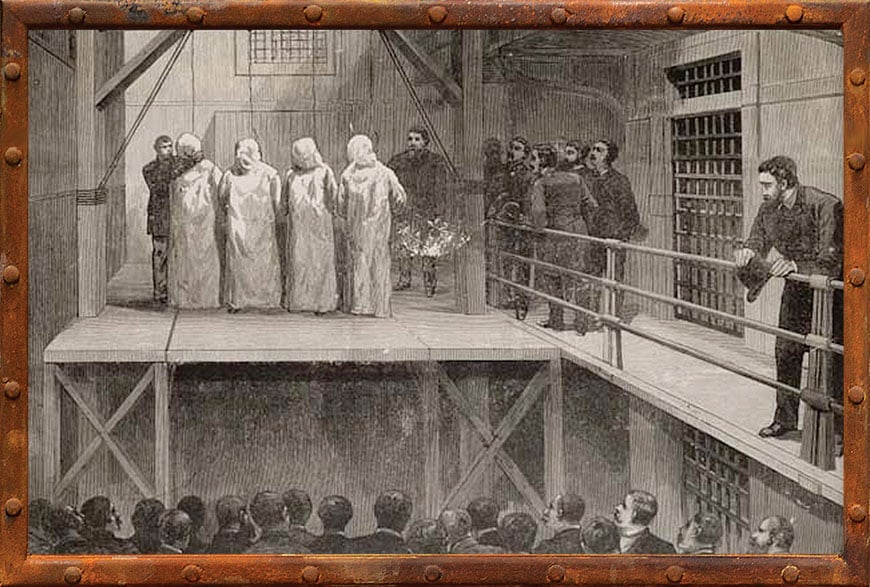
The Haymarket Affair executions are widely considered one of the most notorious miscarriages of justice in American history. Photo Credit: Chicago History Museum
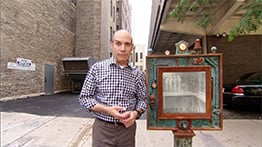
Watch the Segment
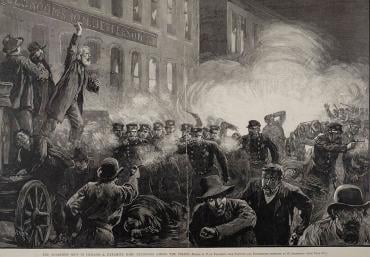
A bomb thrown by an unknown assailant led to a riot in which seven policemen and an unknown number of demonstrators were killed. Photo Credit: Chicago History Museum
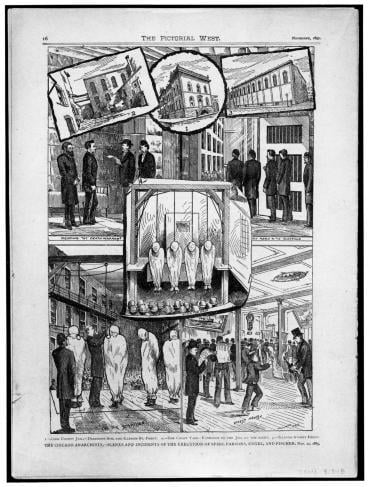
Four anarchists were hanged on November 11, 1887; none were proven to have been involved in the throwing of the bomb. Photo Credit: Chicago History Museum
The eight-hour workday has a historic – and tragic – link to Chicago history.
In 1886, workers were toiling 10 to 12 hours a day in the stockyards, rail yards, and factories of Chicago. A series of strikes and protests throughout the city in early May of that year made the eight-hour workday their focus and central demand.
On May 4, 1886, in the Haymarket on Randolph Street near Halsted Street, someone threw a dynamite bomb after an otherwise peaceful labor rally. In the resulting riot, seven policemen and an unknown number of demonstrators lost their lives.
Police arrested hundreds of labor activists, and ultimately charged eight men. Even though most of the defendants hadn’t even attended the rally, with urging from Chicago’s business leaders and newspapers, all eight “anarchists” were convicted, without legal precedent, of a conspiracy. Seven were sentenced to death.
Four of the men were later hanged in the alley behind what was then the Cook County Courthouse at 54 West Hubbard Street. The case is considered one of the most notorious miscarriages of justice in American history.
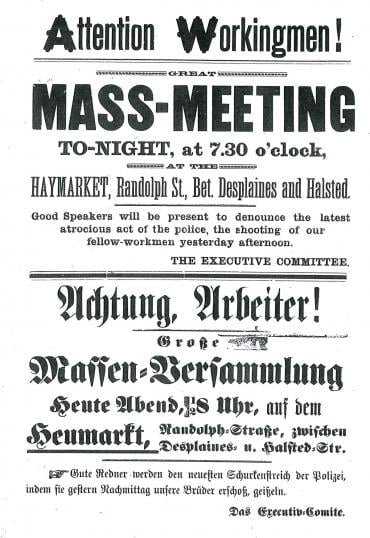
A handbill advertising the rally was in both English and German. Anti-immigrant sentiment fueled the convictions. Photo Credit: Chicago History Museum
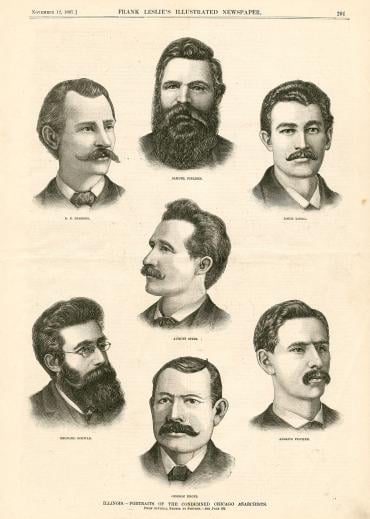
Of the seven condemned men, four were hanged; one committed suicide in the jail; and two were later pardoned by the governor. Photo Credit: Chicago History Museum
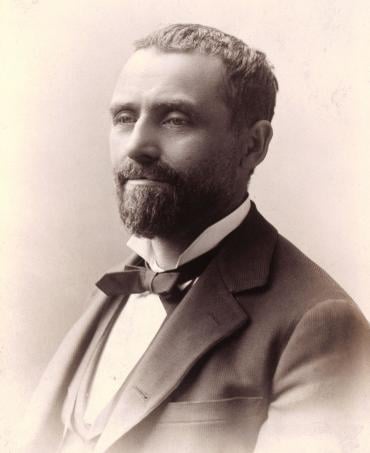
Governor John Peter Altgeld pardoned the three defendants who remained in jail in 1894. He was widely criticized for the move, which may have cost him his political career. Photo Credit: Chicago History Museum
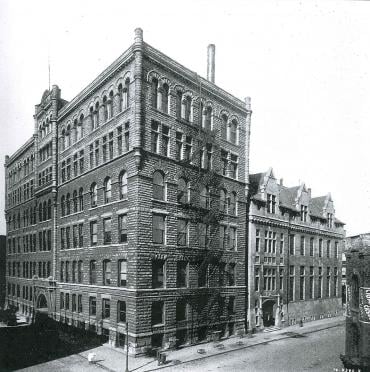
The original Cook County Courthouse at 54 West Hubbard Street (in whose courtyard the Haymarket hangings took place) was torn down. Photo Credit: Chicago History Museum
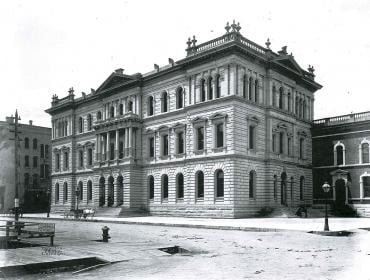
On the same site, a larger courthouse was built in 1893. That building still stands, and is used today as an office building. Photo Credit: Chicago History Museum
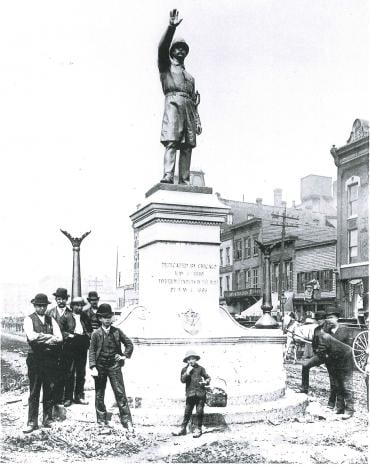
A monument to the fallen policemen stood at the scene of the riot until the Vietnam era, when the monument itself was bombed twice. A new monument on the site memorializes both police and labor activists. Photo Credit: Chicago History Museum
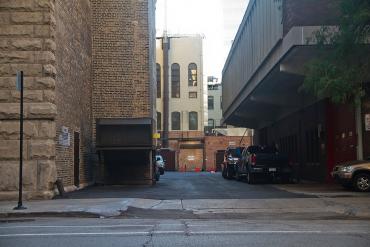
The courtyard where the hangings took place is now an alley between the former courthouse and a Chicago Fire Department building to the north. Photo Credit: Alan Brunettin


